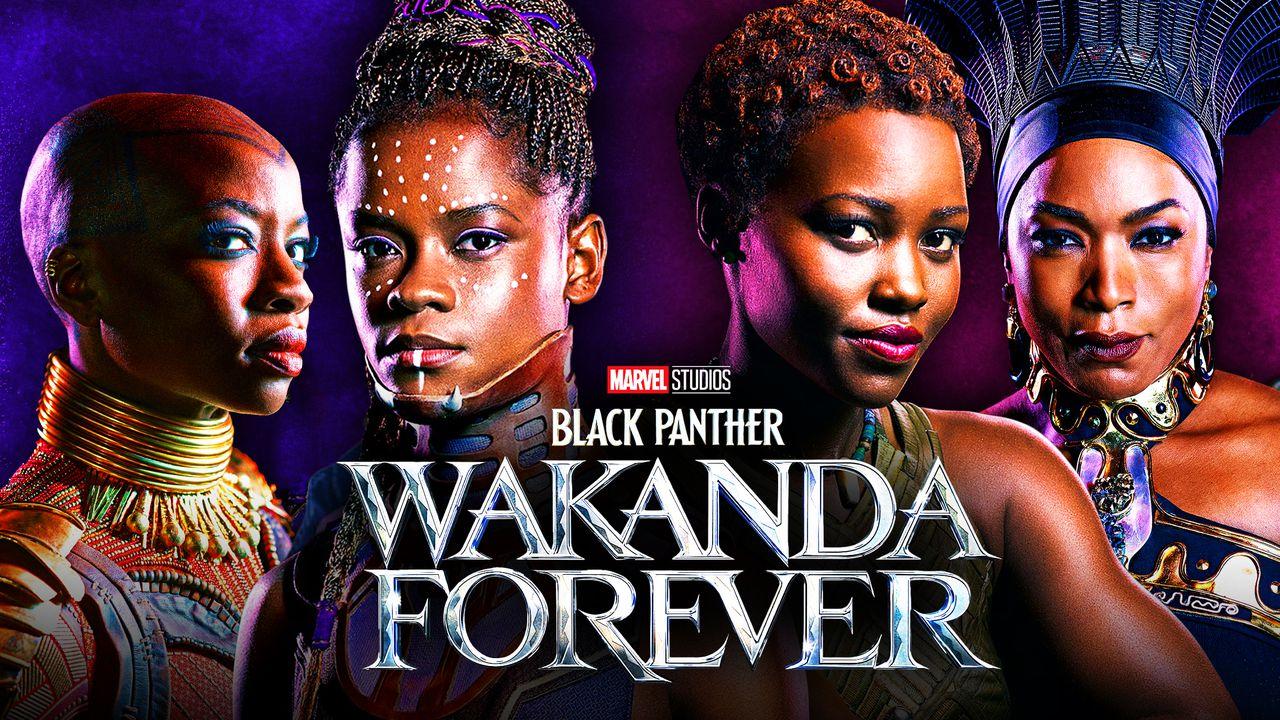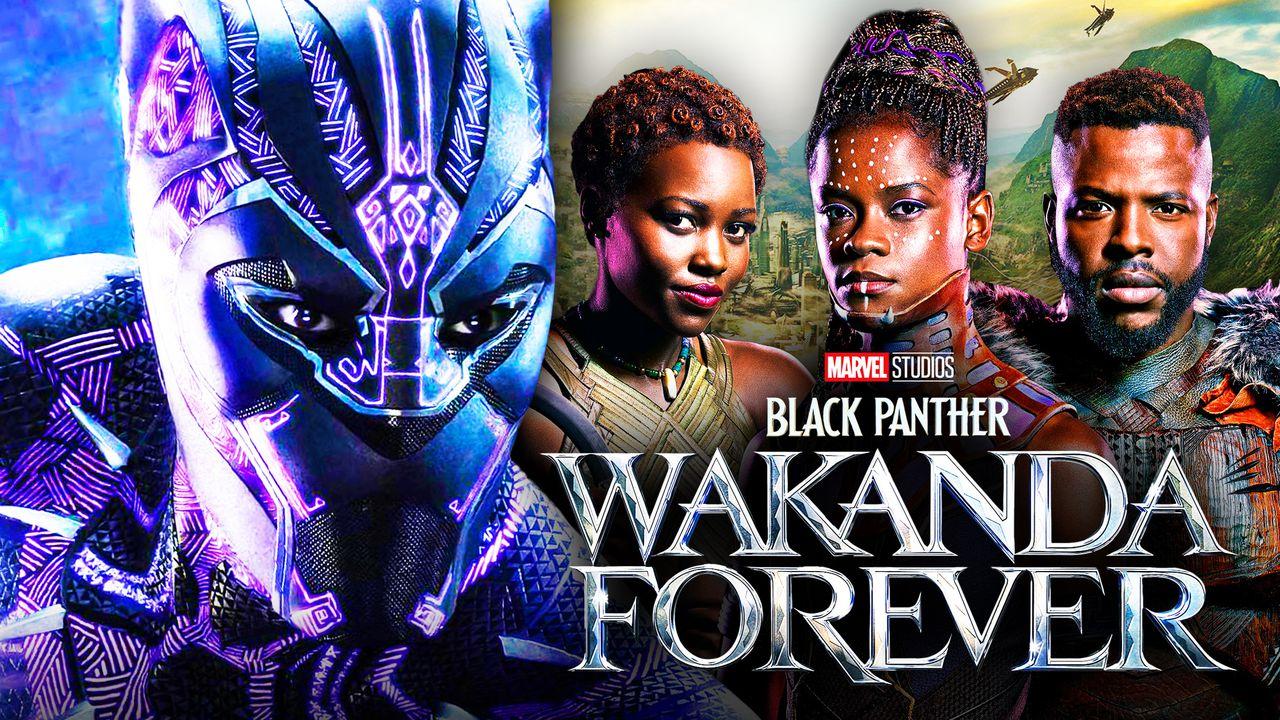
As 2022, as well as Phase 4 of the MCU, draws to a close, all eyes are on Marvel Studios' next theatrical release and the long-awaited sequel: Black Panther: Wakanda Forever.
While 2018's Black Panther featured a largely female cast of the likes of Letitia Wright, Lupita Nyong'o, and Danai Gurira, the tragic passing of Chadwick Boseman has resulted in those female stars taking the helm of Wakanda Forever.
For any other film, the loss of its title character would likely have been insurmountable. The fact that Wakanda Forever is carrying on and with great fan anticipation is a testament to its cast and, interestingly enough, the utopian world of Wakanda.
Black Panther 2 Stars Explain Wakanda's Lack of Sexism

In talking with The New York Times, the female cast of Black Panther: Wakanda Forever discussed Wakanda's inspiring lack of sexism.
According to Mabel Cadena, who is playing Namora in Black Panther 2, Wakanda's view of women is, to her, "the legacy of the first movie:"
"[It’s been said that] when a woman raises her voice, we all bloom. These words are really inspiring to me, and I think this is the legacy of the first movie. Before this, I had only worked in Mexico City, so working with these women and Ryan completely changed my life and the way I thought about my career. Now, I have new dreams and new expectations about the way I want to make women characters."
Queen Ramonda's Angela Bassett, who's expected to play an even more pivotal role in Wakanda Forever, acknowledged that the unity between the cast is also part of the film's message, saying, "it's not only about the work" but also "about how we work with one another:"
"It all played out beautifully that I’ve had a bit more experience in my career and that they are coming up and doing the same great work. There’s a lot of respect. But it’s not only about the work that we do; it’s also about how we work with one another. If we lock arms, then it’s a much stronger piece."
When Black Panther premiered in 2018, it wasn't just Marvel Studios' latest film but rather a cultural phenomenon.
Much of this is because Wakanda, the cast, and the film's story didn't just connect to the greater MCU, but also to audiences in terms of inspiration and representation.
Much like Cadena, Nakia's Lupita Nyong'o believes that Black Panther's handling of its female cast plays was key to its relatability because, in Wakanda, "gender doesn't exist."
While that kind of world isn't a reflection of the current reality, the actress hopes this reality will become "empowered by it, despite itself:"
"The undervaluing of women because of their gender doesn’t exist in Wakanda. We saw that in the first film, which is why it resonated. This new film continues with the conceit that this is a world where those things don’t exist. But the question we’re tackling is not their womanhood. It’s their beliefs, passions, loves and arguments, and it creates a robust drama. Hopefully, the world as we know it watches and is empowered by it, despite itself."
Along those lines, Nyong'o also described Wakanda as "a version of a world" that we are all "striving to get to:"
"What I love about the Wakanda story is that it offers us a version of a world that we are striving to get to."
As to what it's like joining this particular world for the first time, Cadena shared that, at the start of filming, she struggled with the physical training and "didn't speak the same language."
According to her, what kept her going was thinking, "If these girls can, I can do one more day:"
"It was incredible. I didn’t speak the same language at the beginning, and the fight training was really hard for me, too. There were points when I felt really tired, but I was also inspired by these women every day. I’d say, 'If these girls can, I can do more one day.' And then I’d speak to Ryan, and he’d give me the opportunity to build out my character as a Mexican woman. So, I was able to confront my fears and, at the same time, felt entirely safe with and grateful for these women."
In talking about the film's rigorous training, Florence Kasumba, who plays Ayo, admitted that she "started training for this role in May of 2021:"
"You have to be physically and mentally so sharp. I started training for this role in May 2021 because mentally, you need to understand that your body has to function for about a year. And because we work with weapons and can hurt ourselves, we also had to be confident enough to do our strikes while also making sure we didn’t harm our colleagues. The training from the first movie helped us because there’s a lot of muscle memory."
In regard to the film's physical demands on its cast and how it connects to the franchise's female characters, Okoye's Danai Gurira feels that training allows her to "live in sort of an instinct of warriorness that is specific to [her] character:"
"The literal training is very dependent on the story we’re telling. In the first film, there was a specific enemy and a specific response. Now, we are telling another story, so there are very specific drills to unify us. And then there’s a lot of individual work. I had a couple of injuries over the course of this one, and I had to fight through them. But I love it because, ultimately, it grounds the world. You have to know how to move and live in sort of an instinct of warriorness that is specific to your character."
How Black Panther Succeeds With Its Female Characters
While there are a variety of reasons why Black Panther was such a popular and pivotal film, much of its charisma and inspiration can be attributed to its female stars and how writer and director Ryan Coogler portrayed them on-screen.
As Hollywood attempts to succeed with the now-cliche archetype of "strong female characters," Black Panther introduced audiences to women whose strength and intelligence weren't presented as unusual or groundbreaking, but rather the norm.
While it's true that Wakanda is, as Lupita Nyong'o explained, "a version of a world that we are striving to get to," the characters, the actress, and her fellow castmates portray are some of the best on-screen examples of real women (minus the Vibranium weaponry and Dora Milaje training, of course).
In a sense, not only does sexism not exist in Wakanda, it never existed in the Black Panther franchise or within its scripts.
Now, in addition to learning about the cast's hopes for how Wakanda can inspire, it was equally fascinating to hear from MCU newcomer Mabel Cadena and how the film's cast personally inspired her during filming.
Fans are likely to learn more about Cadena's role as marketing ramps up ahead of Wakanda Forever's November release and possibly at the D23 Expo.
Black Panther: Wakanda Forever premieres on November 11.












